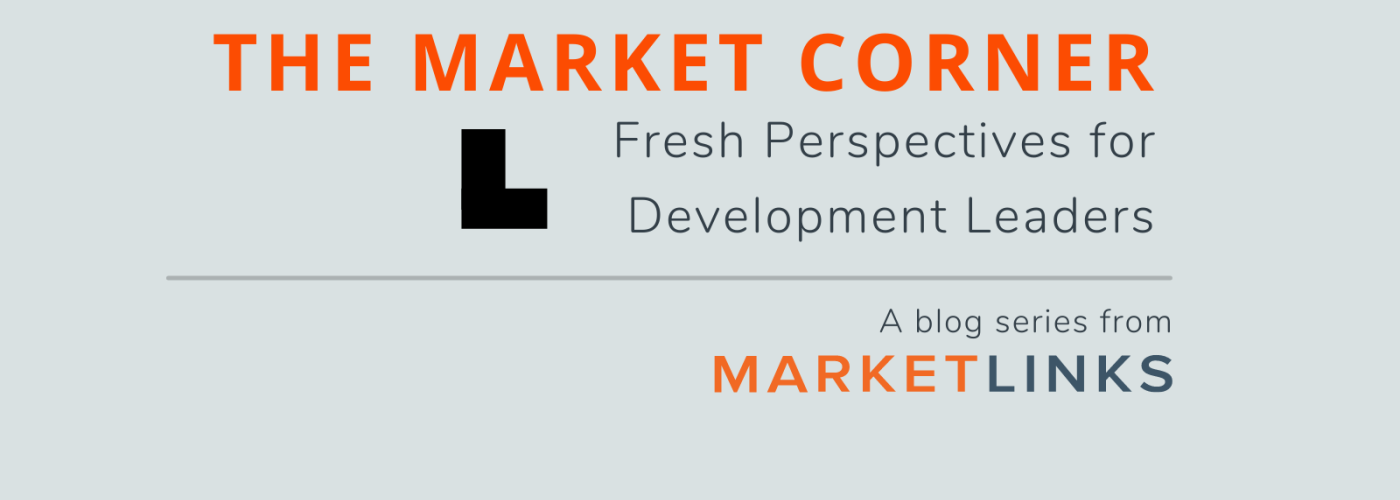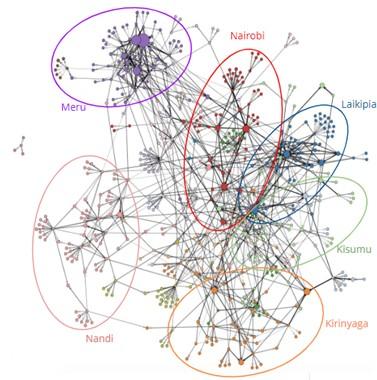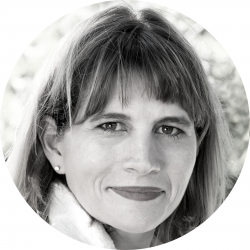The Market Corner: The Role of Cooperatives in Advancing Locally Led Development
Image

This month, the Market Corner sits down with Kristin Wilcox, Chief of Party for the USAID Cooperative Development Program - Cooperative Leadership Engagement Advocacy and Research (CLEAR) Activity and advocate for the global cooperative movement, to explore the role of cooperatives in advancing locally led development and the barriers they face. This post was authored by Holly Lard Krueger.
Cooperatives are a value-based enterprise and invest directly in the talent and skills growth of their members and communities. According to Kristin, the cooperative model offers an alternative for business owners who want to ensure that business assets, resources, and profits stay local. She believes that the cooperative model is very attractive yet underutilized by communities, especially those that have been highly affected by globalization.
“As the daughter of a small business owner, the cooperatives movement speaks to my practical interest in helping small businesses work better and to my values and personal commitment to inclusion.” – Kristin Wilcox
Cooperatives are an attractive alternative business model in localization discussions.
In the current context of the international development industry’s renewed attention to locally led development, cooperative models are gaining attention as an attractive, inherently local alternative business model. In reality, according to Kristin, cooperatives have been a go-to model throughout USAID’s history of experimentation (e.g., USAID Forward, Journey to Self-Reliance), empowering local communities in the development process.
“I love how cooperatives have been a valued business model within each of these [localization] movements because cooperatives are inherently local.” - Kristin Wilcox
Kristin admits that “developing a truly successful cooperative is not an easy road.” The cooperative model requires, among other things, the sharing of power, fair distribution of equity, and deep engagement from members. In her decade-plus career working with cooperatives, Kristin has found that “you have to deal with the inherent challenges of a start-up business and, at the same time, with the additional difficulties of achieving inclusive and equitable participation and benefit for all cooperative members.” She has found that even if you agree upfront to a lot of iterations to the cooperative founding documents, it is very challenging to ensure the voices of all members come together to form one coherent business endeavor.
Fulfill potential as local actors.
In developing economies, cooperatives often operate in very centralized systems, according to Kristin. Both regulation and administration are highly centralized. In the CLEAR Activity, a key focus for her team is helping facilitate the redistribution of the knowledge, technical skills, and business opportunities, in addition to working with local officials to develop more inclusive policies and business enabling environments. They believe that more decentralized access to information, skills, and opportunities will enable cooperatives to thrive at a more local level and fulfill their potential as local actors.
Information is power.
Cooperative members need information to play an active role. Consequently, effective and efficient flows of information within a cooperative and across the network of cooperatives are essential.
“It has been amazing to watch how simple tools like WhatsApp have enabled better information flow.” – Kristin Wilcox
The CLEAR activity partners with the Democracy at Work Institute, a learning institute affiliated with the U.S. Federation of Worker Cooperatives in San Francisco, to help cooperatives forge greater engagement with their members through communication tools and financial storytelling. The aim is to break down complex financial concepts, so that the average cooperative member can understand the financial health of the cooperative. According to Kristin, financial literacy can be an obstacle to constructive engagement of cooperative members.
In addition to information flow among cooperative members, Kristin and her team also focus on nodes and the flow of information within the cooperative network in Kenya. In collaboration with other leaders in the cooperative development movement, NCBA CLUSA, WOCCU, and Root Change, the CLEAR activity conducted a social network analysis to see how information flows across the cooperative system. They found that the system is largely composed of independent actors, which impedes information flows and thereby reinforces the existing dynamic of individuals seeking out local government or NGOs for information, funding, and/or technical skills.
Image

Figure 1: A recent social network analysis by the CLEAR Activity.
The cooperative movement is not new. However, innovations in communication, as well as the use of system mapping tools, has helped cooperative development organizations to more effectively address perennial challenges in cooperative development. At the same time, the industry's renewed attention to locally led development has helped to raise the visibility of the cooperative movement within development circles.
Are you working to advance the cooperative movement? Share what’s working with us at Marketlinks. Post via your Marketlinks account, or send them to us at info@marketlinks.org, and we may include them in the next installment of the blog!
Image

Holly Lard Krueger
Holly Lard Krueger is a managing partner at the Canopy Lab and a market systems development expert with over 15 years of experience providing technical advice in the field of private sector development/engagement with a specific focus on applying digital technology, gender equality and social inclusion (GESI), market systems, and Value for Money (VfM) principles to project and strategy design for agriculture, humanitarian aid, business enabling environment reform, trade, urban development, and women’s economic empowerment programs.
Holly is a proven strategic leader, having managed large market systems projects with diverse teams. She is also skilled as a strategic advisor, coach, and trainer in the practical application of systems approaches to market development, and she is currently an advisor to USAID’s Bureau for Humanitarian Assistance, a World Bank-funded program in West Africa (TFWA), a DFAT-funded program in Indonesia (PRISMA), and a FCDO-funded program in the Democratic Republic of the Congo (Essor). Holly is based in Morocco and has worked in over 15 countries in Africa, Asia, and the Middle East and has implemented projects and conducted evaluations for leading donors, including the Bill & Melinda Gates Foundation, DFAT, IFC, FCDO, USAID, and the World Bank. She has an M.A. from Johns Hopkins School of Advanced International Studies and a B.A. from Vanderbilt University.
Image

Kristin Wilcox Feldman
Kristin Wilcox Feldman has served as the Chief of Party for Global Communities’ USAID Cooperative Development Program activities since 2016. She has more than a decade of experience working to strengthen enabling environments and build capacities of SMEs and cooperatives. Kristin is a passionate advocate for advancing innovations in economic inclusion and showcasing the cooperative model’s ability to build economic opportunities in communities. She is committed to robust research at the intersection of social capital and community resilience and understanding how social enterprise contributes to community stability. Kristin is a dedicated leader committed to achieving durable results and works to empower every team member and amplify their core strengths.

